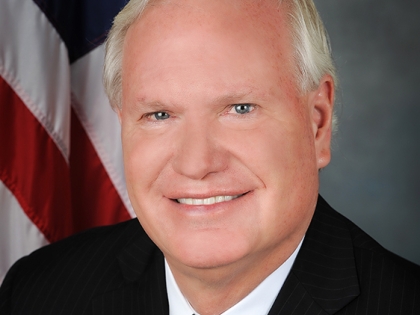
Senator Avella Introduces Legislation to Address Security Issues of Airbnb Rentals
August 7, 2017
QUEENS, NY - Responding to calls from frustrated constituents and reports that a house in his district was issued a vacate order for operating as an illegal hotel, NYS Senator Tony Avella announced on a conference call today plans to introduce new legislation that would bridge the safety gaps between short-term rentals and legal lodging establishments.
Announced just shortly after NYS Assembly Member Linda B. Rosenthal introduced legislation that would require Airbnb to provide the addresses of its hosts’ listings to law enforcement officials, Senator Avella’s bill seeks to create further uniformity among all lodging establishments by requiring short-term Airbnb rentals to keep guests’ records for a certain period of time and require legal identification upon check-in; things legal lodging establishments like hotels and motels already regularly do.
The bill would amend the state’s General Business Law to place the same requirements on short-term rentals that are currently required of legal lodging establishments, including keeping for a period of three years basic information about guests and producing them when asked by regulators or law enforcement.
Additionally, Senator Avella will introduce language that would require all legal lodging establishments – hotels, motels, and short-term rentals – to require production of legal photo ID. While most hotels routinely do that now, Airbnb does not require hosts to request identification of guests upon arrival and check-in.
“Airbnb’s unwelcome proliferation in neighborhoods in my district, mostly by absentee commercial operators, has created a public nuisance and public safety risks that are simply unacceptable,” said NYS Senator Tony Avella. “If Airbnb wants to act like a hotel, then it must be subject to the same basic transparency and disclosure requirements that all legal lodging establishments in the City of New York are responsible for.”
In addition to allowing listings that violate fire safety and building codes like in Queens to be advertised on its site, Airbnb has come under scrutiny lately for posing dangerous security risks to the communities where it operates. An example of this was highlighted recently when reports surfaced that a user was sexually assaulted by a “verified superhost” who had a past arrest record for battery and domestic violence.
According to Airbnb’s own policy statement on screening users, it says background checks are completed only when enough information is provided and if the user is a United States citizen. Airbnb also concedes that the databases referenced are often not up-to-date, and the information returned is not always comprehensive.
Requiring photo identification upon check-in and the keeping of registries of guests are two key efforts that would address these issues of public safety and bridge the gap between short-term rentals and legal lodging establishments.


